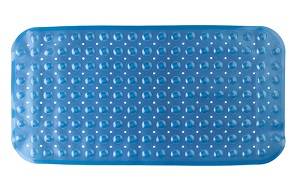
 A California man has spent the last five years in hospitals and assisted living centers instead of at home with his family after being paralyzed in a trucking accident. The reason? The workers’ compensation insurance that should have paid to have his home renovated appealed three different times instead of funding the updates that would have made it possible for him to live at home full-time.
A California man has spent the last five years in hospitals and assisted living centers instead of at home with his family after being paralyzed in a trucking accident. The reason? The workers’ compensation insurance that should have paid to have his home renovated appealed three different times instead of funding the updates that would have made it possible for him to live at home full-time.
A Five-Year Battle
When he woke up after the accident, the first thing the man could think about was whether or not he had injured anyone else when his truck crashed. He gave no thought to his own circumstances, despite being rendered a quadriplegic – just the well-being of others on the road. So, when he was told that he was the only one injured in the crash, he was able to accept his medical fate with grace. What he was not able to accept was living in an assisted living facility an hour away from his family.
 Under current state law, complaints of nursing home negligence or abuse against Illinois nursing homes can be made anonymously. A recently proposed bill, sponsored by East Peoria Representative Mike Unes, could ban such complaints. Advocates say this bill would cut back on the amount of time wasted on fraudulent complaints, but the opposition feels it would only deter valid ones. The real question is: who is right?
Under current state law, complaints of nursing home negligence or abuse against Illinois nursing homes can be made anonymously. A recently proposed bill, sponsored by East Peoria Representative Mike Unes, could ban such complaints. Advocates say this bill would cut back on the amount of time wasted on fraudulent complaints, but the opposition feels it would only deter valid ones. The real question is: who is right?
Lawmakers Say Bill Would Keep Caller Information Confidential
Already approved by a House committee and awaiting a vote from the Senate, the bill (otherwise known as House Bill 5601) would completely prohibit anonymity in nursing home complaints. Instead, callers would be required to leave their contact information so that the state could contact them with any further questions or information. The caller would also be informed that a false complaint could carry criminal charges. The goal, according to Unes, is to reduce the number of fraudulent calls while improving communication with those filing reports, but between the fear of facing charges and the fear of retaliation, some callers may decide that leaving their information is too much of a risk.
 Driverless cars are thought to be the wave of the future, a way to decrease risks of distracted driving and improve safety. Unfortunately, the world is a long way off from actually realizing such a phenomenon. Case in point: the recent accident involving a bus and a Google autonomous vehicle (AV). This poses some potential setbacks for the company and driverless cars as a whole, but it also leaves many wondering who would be to blame in situations such as this.
Driverless cars are thought to be the wave of the future, a way to decrease risks of distracted driving and improve safety. Unfortunately, the world is a long way off from actually realizing such a phenomenon. Case in point: the recent accident involving a bus and a Google autonomous vehicle (AV). This poses some potential setbacks for the company and driverless cars as a whole, but it also leaves many wondering who would be to blame in situations such as this.
About the Crash
While traveling about two miles per hour, the Google AV driver noticed a bus approaching in their left side mirror but mistakenly believed the bus would either stop or slow down to let them pass. The car’s software also apparently thought the bus would stop. Instead, as the Google AV re-entered the center lane, it made contact with the side of the bus, which was operating at about 15 miles per hour at the time of the accident. Sandbags in the road are also thought to be a contributing factor in the accident.
 In a perfect world, every person would take accountability for their actions, all parties in an accident would carry adequate insurance and exchange information, and victims would never have to worry about how they will cover their medical expenses or vehicle repairs. Unfortunately, the world is far from perfect, as indicated by a hit-and-run accident involving an Illinois police officer.
In a perfect world, every person would take accountability for their actions, all parties in an accident would carry adequate insurance and exchange information, and victims would never have to worry about how they will cover their medical expenses or vehicle repairs. Unfortunately, the world is far from perfect, as indicated by a hit-and-run accident involving an Illinois police officer.
The crash occurred in Hammond, Illinois, and seriously injured a motorcycle rider. The police officer, a 13-year veteran of the Evanston Police Department, was driving his personal vehicle, and was subsequently charged with leaving the scene of an accident resulting in serious bodily injury. The case is currently pending.
Hit-and-Run Accidents on the Rise
 According to statistics from the Bureau of Labor Statistics, approximately three million nonfatal workplace injuries and illnesses occur each year. Of those cases, more than half involved missed workdays, job transfers, or work restrictions. Trips and slips, electrocutions, repetitive motion injuries, machine entanglement, vehicle crashes, and falling objects are some of the most common causes, which can affect anyone. However, a new study suggests that sleep apnea sufferers may be especially prone to workplace injuries.
According to statistics from the Bureau of Labor Statistics, approximately three million nonfatal workplace injuries and illnesses occur each year. Of those cases, more than half involved missed workdays, job transfers, or work restrictions. Trips and slips, electrocutions, repetitive motion injuries, machine entanglement, vehicle crashes, and falling objects are some of the most common causes, which can affect anyone. However, a new study suggests that sleep apnea sufferers may be especially prone to workplace injuries.
What is Obstructive Sleep Apnea?
Obstructive sleep apnea, a condition that blocks the airway during sleep and then causes wakefulness throughout the night, affects approximately 22 million Americans. Sufferers often experience marked daytime sleepiness and fatigue due to the disruption of the brain’s normal sleeping cycle, but few awaken fully during obstructive episodes. As a result, many cases go undiagnosed.
 Train accidents are rather rare, which makes them exceptionally memorable when they do happen. Such is the case in a recent accident between a truck and a train in Homer, Illinois. Thankfully, no one was injured or killed. The driver of the truck may be due compensation, however, since the accident could have been prevented.
Train accidents are rather rare, which makes them exceptionally memorable when they do happen. Such is the case in a recent accident between a truck and a train in Homer, Illinois. Thankfully, no one was injured or killed. The driver of the truck may be due compensation, however, since the accident could have been prevented.
Unmarked Construction
According to the city’s police chief, seven cars had derailed about a week prior to the accident in question. The company that owns the line had allegedly closed the road to clean up the aftermath and fix the problem, but the contractor who was working on the repairs reportedly moved the barricades from both sides and then forgot to return them before leaving. This made it an unmarked construction zone – one with a hole reportedly so deep, it managed to stop the 72-year-old man’s truck as he tried to driver over the tracks.
 Pessimism, or a negative bias, has an impact on almost every aspect of your life, including your mood, relationships, and even your health. Now, science has added a new potential risk for those that see the world as a half empty glass: they may be more prone to experiencing motor vehicle accidents.
Pessimism, or a negative bias, has an impact on almost every aspect of your life, including your mood, relationships, and even your health. Now, science has added a new potential risk for those that see the world as a half empty glass: they may be more prone to experiencing motor vehicle accidents.
Negative Bias Increases Response Time to Negative Stimuli
In the study, researchers from the Chinese Academy of Science’s Institute of Psychology interviewed 38 drivers with at least three years of driving experience. Using the number of penalty points on their driving records, the participants were then split into two groups – 23 were considered “safe” drivers and 15 were considered “dangerous” drivers.
All drivers were asked to view a series of photographs and determine if they had a red border or blue border. Each was meant to incite a negative, positive, or neutral emotion. Those in the dangerous driving group took slightly longer to identify the border colors of negative emotion photographs than those in the safe driving group. According to the authors, this suggests that negative drivers may take longer to respond to negative stimuli while driving.
 According to public policy, consumers have the right to expect certain measures have been taken to ensure the products they purchase are safe for use. Those measures extend to the product’s design, manufacturing, labeling, and marketing. When companies fail to meet those minimum product safety requirements, they become liable for the injuries or deaths caused.
According to public policy, consumers have the right to expect certain measures have been taken to ensure the products they purchase are safe for use. Those measures extend to the product’s design, manufacturing, labeling, and marketing. When companies fail to meet those minimum product safety requirements, they become liable for the injuries or deaths caused.
Recalled AquaRug Bath Mats
According to The Washington Post, Tristar Products, Inc., is currently facing an injury lawsuit over the safety of their AquaRug bath mats. Recalled after 40 online customers filed complaints, the 1.4 million bathmats are said to have faulty suction cups that do not stay in place, which creates a fall risk for consumers. One such consumer reportedly fell while using the AquaRug bath mat.
 Firefighters: just the word invokes a sense of admiration. They are, after all, some of the only men and women that would rush into a burning building to save a life. But, because they are inhaling smoke, combustion by-products, and ash quite frequently, these very same heroes are also three times more likely than the average person to end up with cancer. The only thing more concerning than that statistic is just how difficult it often is for them to receive workers’ compensation.
Firefighters: just the word invokes a sense of admiration. They are, after all, some of the only men and women that would rush into a burning building to save a life. But, because they are inhaling smoke, combustion by-products, and ash quite frequently, these very same heroes are also three times more likely than the average person to end up with cancer. The only thing more concerning than that statistic is just how difficult it often is for them to receive workers’ compensation.
National Institute for Occupational Safety and Health Study
In 2013, the National Institute for Occupational Safety and Health (NIOSH) analyzed cancers and cancer deaths of nearly 30,000 firefighters from the Chicago, Philadelphia, and San Francisco Departments. When their rates were compared to the general public, NIOSH found firefighters were 68 percent more likely to be diagnosed with some form of cancer.
 Each year, around 2.5 million Americans suffer from a concussion. Around 50,000 die from their injuries while the remaining victims suffer from a variety of symptoms for weeks, months, years, or possibly even longer. Most of those symptoms include temporary issues, such as difficulty concentrating, personality changes, confusion, balance problems, and headaches. However, a recent study has linked concussions to potentially lifelong and life-altering complications.
Each year, around 2.5 million Americans suffer from a concussion. Around 50,000 die from their injuries while the remaining victims suffer from a variety of symptoms for weeks, months, years, or possibly even longer. Most of those symptoms include temporary issues, such as difficulty concentrating, personality changes, confusion, balance problems, and headaches. However, a recent study has linked concussions to potentially lifelong and life-altering complications.
New, Lifelong Risks of a Concussion
Over the past few years, researchers, doctors, and scientists have more closely examined concussions and their propensity for long-term complications. Links to a variety of lifelong and life-altering issues have been uncovered in a number of studies, including an increased risk of Alzheimer’s, Parkinson’s, dementia, suicide, and other psychiatric disturbances. Some of the evidence is said to be merely circumstantial at this point, but most healthcare professionals now maintain that a head injury is more sinister than previously thought.